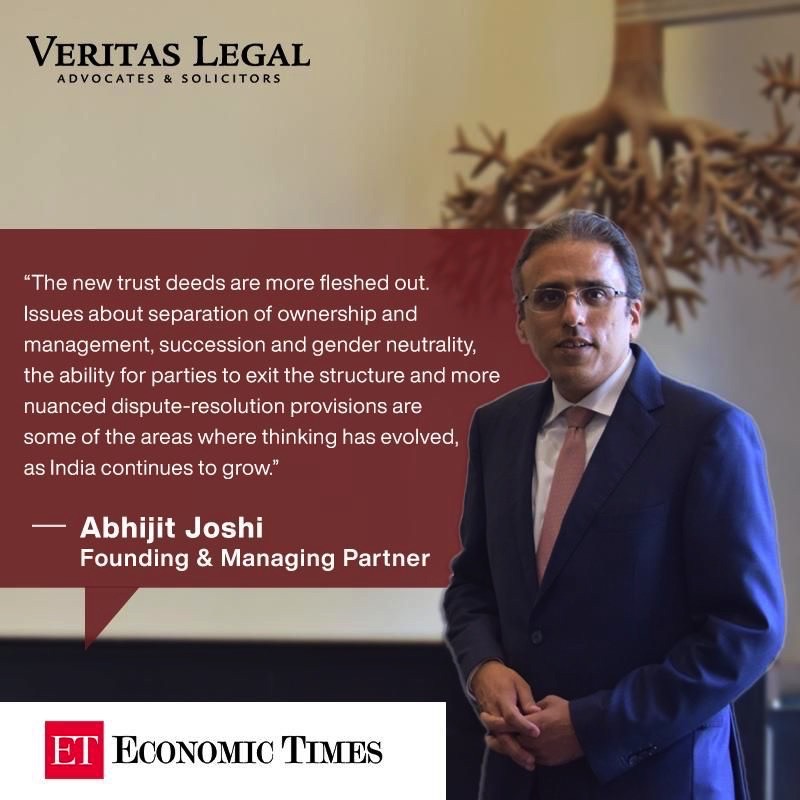
Business families seek legal advice to amend tightly written deeds of family settlement amid global expansion plans
Written by Kala Vijayraghavan & Maulik Vyas
Young guns of Biz houses want flexibility in trusts to enter new markets
A growing number of business families are asking legal advisors and experts in the field to advise them on possible amendments to tightly written Deeds of Family Settlement (DFS) that were designed to safeguard inheritances in an age that didn’t envisage the prospect of members going abroad venturing into segments that were non-existent at the time.
For instance, the younger members of a Delhi-based family which has multiple interests in the consumer sector are seeking opportunities within and outside the country, said a top Mumbai-based business advisor:
“The family deed created 50 years ago is however very tightly knit and structured, allowing little scope for business changes,” he said.
GILAC, G&B GROUP ENTITIES IN PROPOSED COMBINATION
CCI Okays Godrej Family Settlement
The Competition Commission of India (CCI) has cleared the proposed realignment of interests, legal ownership and management of various entities within the Godrej group.
Modifications for Overseas Expansion
“That is leading to conflicts, and we are looking at how best it can meet the new gen’s requirements,” the advisor said.
ET spoke to a number of advisors who said those seeking counsel include high-profile names. Identities can’t be divulged due to confidentiality pacts. As the next generation gets inducted or takes over the reins, business houses are reaching out to trusted lawyers, chartered accountants and consultants to see if they can make amendments to settlements, trust deeds and charters.
Legal experts said the old deeds were drawn up to cater to those who spend their lifetimes in India, posing challenges for those going abroad. Since most of the old deeds have no clauses allowing amendments, these are being included in new ones that are being drawn up. Trust structures are being changed to cater to globetrotting families to support generational wealth transfers, tax and regulatory issues and evolving family dynamics.
Many younger family members are keen on venturing into areas such as fintech, tech-led consumer businesses, electric vehicles (EVs), hospitality and so on but are constrained by agreements among members of the previous generations.
One Mumbai-based business family has sought advice on tax DJ ramifications and wealth transfer as one section of the family has relocated overseas.
PROTECTION OF WEALTH
“The new trust deeds are more fleshed out,” said Abhijit Joshi, managing partner of law firm Veritas Legal. “Issues about separation of ownership and management, succession and gender neutrality, the ability for parties to exit the structure and more nuanced dispute resolution provisions are some of the areas where thinking has evolved, as India continues to grow.”
“The new templates are borrowing from similar deeds in other countries, giving more importance to protection of wealth rather than just management of wealth,” he said. Private trusts in India come under the aegis of the Indian Trust Act and usually cover assets such as houses, shares and financial investments. A DFS is drawn up when a family decides to split its assets and typically includes division of wealth, non-compete clauses and use of the family name. A family charter or constitution is a document outlining the values, principles and rules governing the business. It serves as a guide to clarify roles and expectations but is often not legally binding, the experts.
